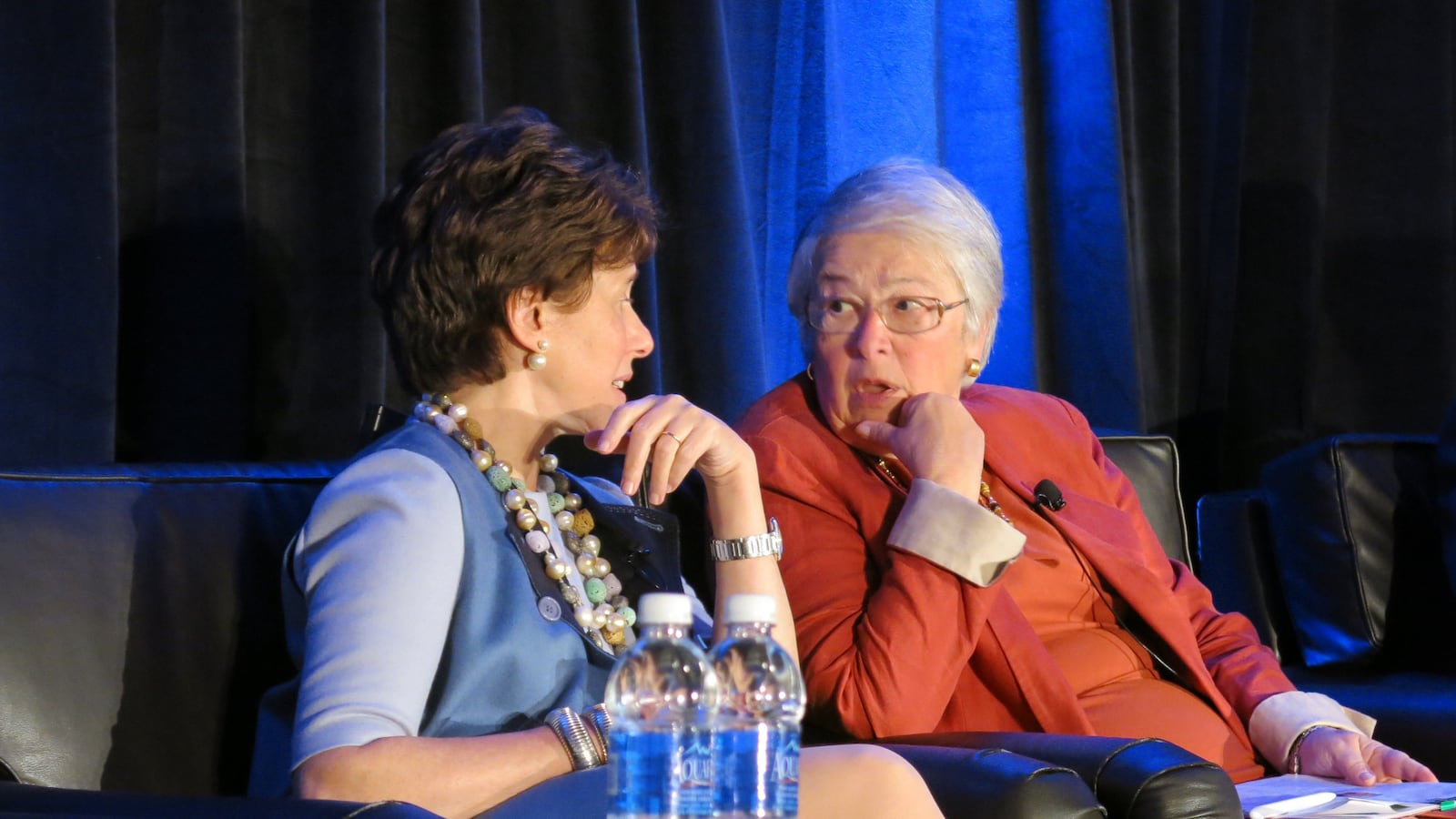Outgoing state Board of Regents Chancellor Merryl Tisch took a swipe at New York City’s school-improvement program Thursday, saying the city is permitting “failure” at certain troubled schools and setting “ridiculous” goals at others.
Her comments came after Chalkbeat reported that the city has quietly given the 94 struggling schools in its $400 million “Renewal” improvement program three years to hit one-year targets. One of the schools, M.S. 53 in Queens, has until 2017 to boost its students’ average reading score from 2.14 to 2.15.
“At some point, everyone has to stop being ridiculous,” Tisch, New York’s top education official, said in an interview Thursday. “2.14 to 2.15? I mean, give me a break.”
She went on: “If that’s OK, then their definition of OK and my definition of OK are two very different definitions.”
Even though Tisch’s influence over state education policy is waning — she announced a few weeks ago that she will step down from her post in March — city education department officials were quick to fire back.
Spokeswoman Devora Kaye said the city’s Renewal school goals are more demanding than ones the state has mandated for schools in its “receivership” program, which puts outside groups in charge of low-performing schools that fail to improve.
“The concrete targets we’ve set exceed those set by the state for its receivership program, established under Chancellor Tisch,” Kaye said in a statement. (The state has not yet publicly released the receivership goals.)
Mayor Bill de Blasio and city schools Chancellor Carmen Fariña have repeatedly said they will consider closing any schools that continue to flounder after receiving extra student services and teacher training. Kaye emphasized that point Thursday, and even implied that officials are considering shuttering some schools next year.
“We will make the difficult decision about where that is necessary for the coming school year,” she said. “We are demanding sustained progress, and will hold schools accountable if it’s not made.”
Tisch, who has said she intends to weigh in on contentious education issues before leaving her role, has expressed doubts before about de Blasio’s approach to struggling schools.
This spring, she called it a mistake not to shut down certain chronically low-performing schools, and last year she said the state would move to close such schools if necessary.
On Thursday, she ratcheted up that critique, saying that it is “deeply frustrating” to watch certain schools go through round after round of interventions without making real progress.
“If you sit with persistent failure and you tolerate it, then by definition you are destroying the educational pathways for some kids,” she said. “At some point, you’ve got to pull the plug.”
Tisch is not the only state official to clash with de Blasio, a Democrat, over how to improve troubled schools.
State Senate Majority Leader John Flanagan, a Republican, questioned whether de Blasio had a convincing strategy when lawmakers were debating earlier this year whether to extend his control over the city school system. And de Blasio forcefully rejected Gov. Andrew Cuomo’s receivership scheme, arguing that the city is best qualified to revamp its schools.
John King, who recently left his position as state education commissioner, rejected the de Blasio administration’s initial plans for two of its lowest-performing schools. He demanded that the city establish a process to replace ineffective teachers and administrators at schools, which it did through a deal with the teachers and principals unions.
King’s replacement, MaryEllen Elia, has signaled that she will give the Renewal program a chance. During a recent tour of a Renewal school, she said the city had put in place supports at the school that have the potential to “make a huge difference.”
“Now,” she added, “we have to watch and see what the outcomes are.”

